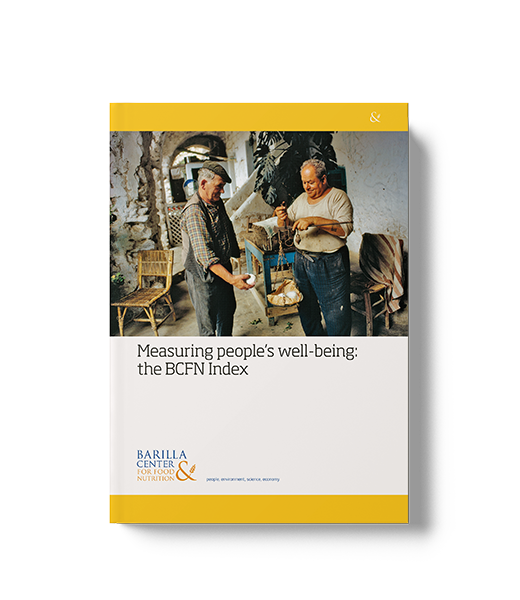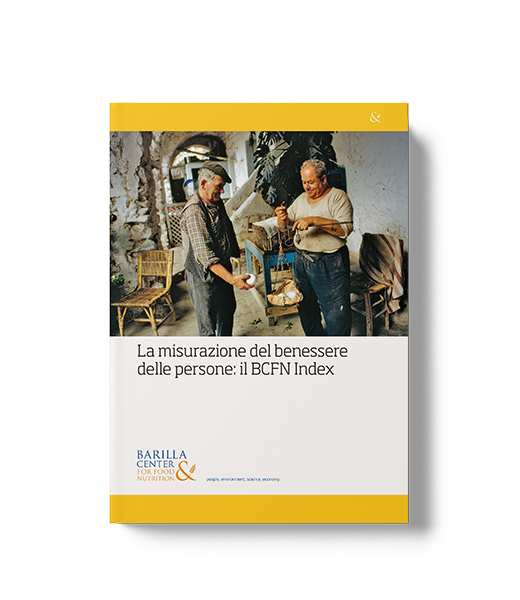
Barilla Center for Food & Nutrition
Measuring people's well-being: the BCNF Index
Barilla Center for Food & Nutrition
Defining and measuring human well-being in a way that is as inclusive, shared, and reflective of the complexity of reality as possible is not only a fascinating challenge for social science scholars, but also a crucial step forward in shaping better political and economic decision-making practices and, perhaps in the long term, a better world.
In Measuring People’s Well-Being: the BCNF Index, the Barilla Center for Food & Nutrition contributes to the ongoing debate on well-being indicators with an innovative and specific input focused on dietary choices and lifestyles. This is a work in progress, the results of which complement official institutional statistics, integrating objective measurement factors with those more subjective and elusive aspects of perceived well-being.
The document presents a “ranking” of the BCNF Index, which shows the final outcome of the comparison among ten selected countries based on different dimensions of well-being.
1. Well-being and how to measure it
2. The BCNF approach to this issue
3. BCNF Index
3.1 Methodology
3.2 Lifestyle sub-index 3.2.1 Psycho-physical well-being 3.2.2 Behavioral well-being 3.2.3 Summary results of the Lifestyle sub-index
3.3 Other components of the BCNF Index
3.3.1 Wealth and Sustainability sub-index
3.3.1 Wealth and Sustainability sub-index
Material well-being
Environmental well-being
Summary results of the Wealth and Sustainability sub-index
3.3.2 Social and Interpersonal sub-index
Educational well-being
Social well-being
Political well-being
Summary results of the Social and Interpersonal sub-index
3.4 The BCNF Index: main evidence
4. Conclusions and next steps
Bibliography
Statistical appendix
Il Barilla Center for Food & Nutrition (BCFN) è un think tank multidisciplinare fondato nel 2009 all’interno della Fondazione Barilla e trasformato in fondazione autonoma nel 2014, con l’obiettivo di raccogliere e analizzare conoscenze sulla filiera alimentare per proporre soluzioni sostenibili e salutari. Con sede a Parma e finanziato dal Gruppo Barilla, riunisce esperti in nutrizione, economia, scienze ambientali e sociologia per studiare le dinamiche di produzione, consumo e spreco alimentare.
Organizza eventi internazionali, tra cui il BCFN Forum, workshop e webinar, coinvolgendo istituzioni, università e ONG in partnership strategiche. Offre programmi di formazione e comunicazione, webinar e risorse online per sensibilizzare consumatori e operatori del settore sulle sfide nutrizionali e ambientali. Grazie a collaborazioni con FAO, IFAD e altre agenzie internazionali, il BCFN contribuisce a definire linee guida e policy per una dieta sana, equa e rispettosa del pianeta.
